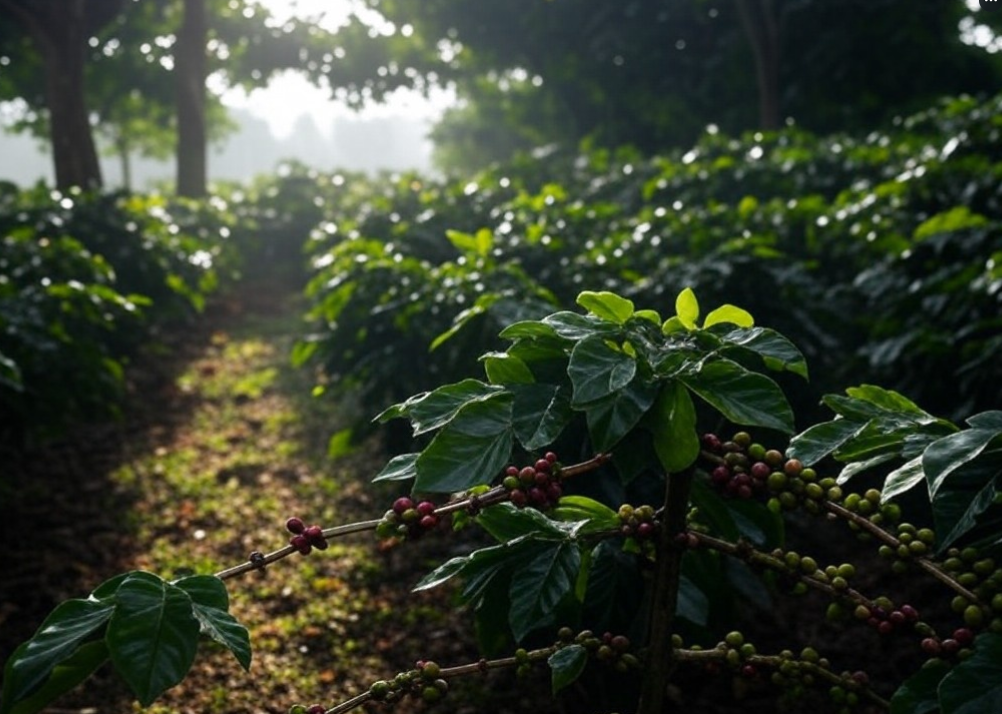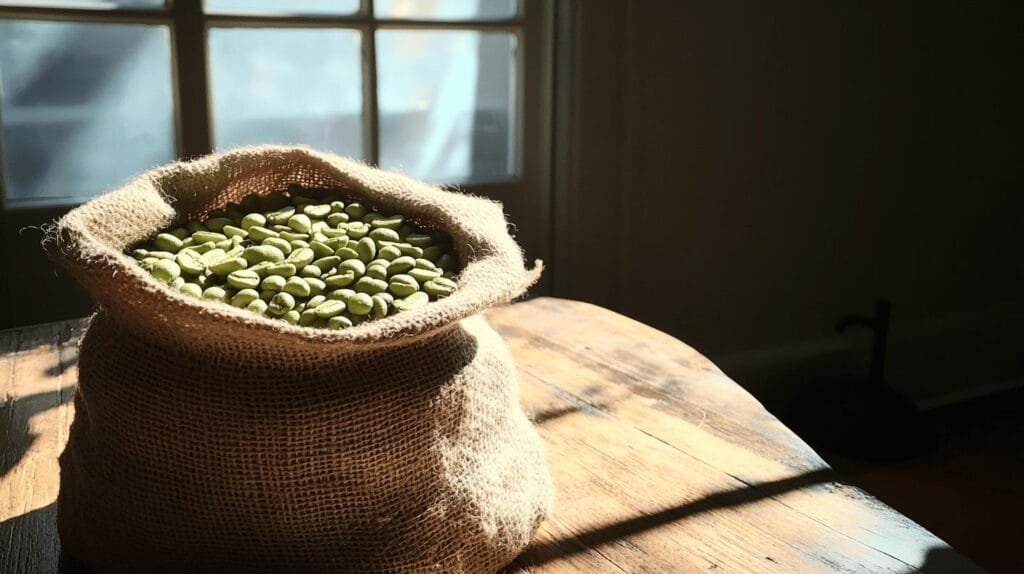Ethically sourced coffee guide aims to enlighten coffee lovers about sustainable and fair practices in the coffee industry. As the world leans towards more conscious consumption, understanding how your daily brew impacts the environment and coffee-growing communities is essential. By choosing ethically sourced coffee, you can enjoy a quality cup while supporting fair wages and sustainable farming practices.
Quick Guide to Ethically Sourced Coffee:
- Look for Certifications: Fair Trade, Organic, and Rainforest Alliance.
- Trace the Origin: Know the farm or cooperative.
- Support Direct Trade: Ensures fair compensation for farmers.
- Consider Sustainability: Eco-friendly farming techniques.
- Choose Responsible Brands: Like Equipoise Coffee’s Ethiopian Yirgacheffe or Colombian Supremo.
Coffee is more than just a beverage; it’s an experience shaped by the efforts of many around the world. Millions enjoy their morning brew, but few consider the journey from bean to cup. Ethical sourcing sets a higher standard, addressing social justice and environmental stewardship. With sustainability at its core, it ensures that coffee farmers receive fair wages and maintain safe, healthy working conditions. Sustainable practices also protect ecosystems, promoting biodiversity and reducing chemical usage.
By aligning your coffee choices with these practices, you not only enjoy a better cup but help create a better world. As you sip, remember you’re supporting fair wages and eco-friendly practices – a small action with a big impact.

Ethically sourced coffee guide vocab to learn:
Understanding Ethically Sourced Coffee
Ethically sourced coffee is all about transparency and traceability. Knowing where your coffee comes from and how it was produced is crucial. It means being able to trace the journey of your coffee beans from the farm to your cup. This transparency ensures that ethical practices are maintained throughout the supply chain.
Transparency and Traceability
Traceability is more than just a buzzword. It means knowing the exact farm or cooperative where the beans were grown. This not only ensures quality but also confirms that the farmers are fairly compensated. It’s about building trust with consumers and supporting sustainable practices.
Fair Trade and Direct Trade
Fair Trade is a well-known certification that guarantees farmers are paid fairly. It also requires farmers to follow certain environmental standards. This certification helps improve the livelihood of farmers while promoting sustainable farming.
Direct Trade is slightly different. It involves building direct relationships between coffee buyers and producers. While it lacks formal certification, it often results in higher quality coffee and better prices for farmers. Direct trade emphasizes mutual respect and transparency between the two parties.
Certifications
Certifications play a big role in ethical coffee sourcing. They provide a visible mark of quality and ethical practices. Here are some common certifications:
- Fair Trade Certified: Ensures fair wages and safe working conditions.
- Rainforest Alliance: Focuses on environmental sustainability and social responsibility.
- Organic: Indicates coffee grown without harmful chemicals.
These certifications help consumers make informed choices and support brands that align with their values.
How to Identify Ethically Sourced Coffee
Identifying ethically sourced coffee can seem tricky, but knowing what to look for makes it much easier. Here are some key certifications and labels to help guide your choices.
Fair Trade Certified
Fair Trade Certified coffee ensures that farmers receive fair wages and work under safe conditions. This certification also requires adherence to specific environmental standards, promoting sustainable farming practices. By choosing Fair Trade, you’re supporting fair compensation and environmental responsibility.
Rainforest Alliance
The Rainforest Alliance certification focuses on social, economic, and environmental sustainability. Coffee with this label is produced with methods that protect ecosystems and wildlife. It also supports the rights and well-being of workers and their communities.
Organic
Organic coffee is grown without synthetic chemicals, fertilizers, or pesticides. Different countries have varying standards for what qualifies as organic, but the core idea remains the same: promoting ecological balance and conserving biodiversity. Look for the organic label to ensure your coffee is free from harmful chemicals.
Shade-Grown and Bird-Friendly
Shade-grown coffee is cultivated under a canopy of trees, which provides a natural habitat for birds and other wildlife. This method is environmentally friendly and often results in richer flavors. The Smithsonian Migratory Bird Center offers a “Bird Friendly” certification, ensuring the coffee is grown in a way that supports bird habitats.
Ethically sourced coffee guide encourages you to look for these certifications when shopping for coffee. By choosing coffee with these labels, you help support sustainable practices and fair treatment for farmers.
Sustainable Coffee Practices
Sustainable coffee practices aren’t just about where your coffee comes from; they’re about how you brew it, what you do with the leftovers, and the tools you use. Let’s explore some simple ways to make your coffee habit more eco-friendly.
Eco-Friendly Brewing
Brewing coffee at home can be both delicious and sustainable. Pour-over and French Press methods are great choices. They don’t require electricity, making them energy-efficient. Plus, they let you control every aspect of brewing, from water temperature to brew time, ensuring you get the best flavors every time.

Composting Coffee Grounds
Don’t toss those used coffee grounds! Composting them is a fantastic way to enrich your garden soil. Coffee grounds are rich in nitrogen, which helps plants grow. Simply add them to your compost bin or directly to your garden soil. This not only reduces waste but also supports a healthier garden.
Reusable Filters
Single-use filters might be convenient, but they create a lot of waste. Instead, opt for reusable filters. They work just as well, are easy to clean, and can last for years. By using reusable filters, you’re cutting down on waste and saving money in the long run.
Energy-Efficient Machines
If you prefer using a coffee machine, look for energy-efficient models. These machines use less power, saving you money on electricity bills and reducing your carbon footprint. Some newer models even have features like automatic shut-off, ensuring they don’t waste energy when not in use.

Making small changes in your coffee routine can have a big impact. Whether it’s choosing a manual brewing method, composting your grounds, or investing in an energy-efficient machine, every step counts towards a more sustainable coffee experience.
The Impact of Climate Change on Coffee Production
Coffee lovers, brace yourselves—climate change is shaking up your morning cup. The Bean Belt, a narrow strip around the equator, is where most of the world’s coffee grows. Countries like Brazil, Vietnam, and Ethiopia depend on this region’s ideal climate. But rising temperatures threaten to shrink this belt dramatically.
Deforestation and Its Effects
Deforestation is a big problem in coffee-growing regions. Cutting down trees for more farmland destroys habitats and contributes to climate change. Without trees, the soil quality drops, affecting coffee plant health. Forests also help regulate the climate, so losing them makes the weather more unpredictable.
Plant Diseases on the Rise
Warmer temperatures and changing rainfall patterns are perfect for plant diseases. Coffee leaf rust and other diseases are spreading faster and wider, wiping out crops. Farmers struggle to protect their plants without using harmful chemicals, which can hurt the environment.
Sustainable Methods to the Rescue
Luckily, there’s hope. Sustainable methods are helping farmers adapt. Planting shade trees protects coffee plants from harsh sun and improves soil health. These trees also attract birds, which keep pests in check naturally. By using these eco-friendly practices, farmers can keep growing coffee without harming the planet.
A Call to Action
Climate change is a real threat to the coffee industry. But by supporting ethically sourced coffee, like the options offered by Equipoise Coffee, you can make a difference. Look for beans that are grown using sustainable methods. Every cup counts in the fight against climate change.
Frequently Asked Questions about Ethically Sourced Coffee
How to tell if coffee is ethically sourced?
Look for labels like Fair Trade Certified and Rainforest Alliance. These certifications ensure that the coffee is grown and harvested under fair conditions. Farmers get fair wages, and the environment is protected. Fair Trade Certified coffee means farmers are paid a fair price, which helps improve their communities. Rainforest Alliance focuses on sustainable farming that protects forests and wildlife.
Another indicator is the term shade-grown. This refers to coffee cultivated under the shade of trees, which helps maintain biodiversity and supports bird habitats. Shade-grown coffee is commonly associated with bird-friendly practices that contribute to preserving natural ecosystems.

What is the most ethical way to buy coffee?
Choose coffee that is fairly traded and shade-grown. This supports ethical practices and helps the environment. Buying from companies that focus on ethically sourced coffee is a great start. Look for brands that offer third-party certifications like Fair Trade and Rainforest Alliance. These certifications are your guarantee that the coffee meets ethical and environmental standards.
Buying directly from local roasters can also be a good option. They often have direct relationships with farmers, ensuring fair prices and sustainable practices. Supporting local businesses also reduces your carbon footprint.
Is Equipoise Coffee ethically sourced?
Yes, Equipoise Coffee is committed to sourcing its coffee ethically. They focus on ensuring coffee is ethically purchased and responsibly produced. This involves fair wages, safe working conditions, and sustainable farming practices. Equipoise Coffee is dedicated to improving their sourcing methods to support ethical practices.
While Equipoise Coffee makes efforts to source ethically, it’s still important to check for third-party certifications. This gives you an extra layer of assurance that the coffee is truly ethically sourced.
Knowing these facts helps you make informed choices and support a more sustainable coffee industry.
Conclusion
Choosing ethically sourced coffee is not just a trend; it’s a responsibility. At Equipoise Coffee, we understand the importance of ethical sourcing in ensuring a sustainable future for coffee. Our commitment to this cause is reflected in every cup we serve.
Why Ethical Sourcing Matters
Ethical sourcing means more than just fair wages for farmers. It ensures sustainable farming practices that protect the environment and support the communities that grow our coffee. With climate change threatening coffee production, adopting sustainable methods is crucial. We believe that by choosing ethically sourced beans, we can make a positive impact on the world.
Equipoise Coffee’s Unique Approach
At Equipoise Coffee, we specialize in small-batch roasting to maintain the freshness and balanced flavors that coffee lovers crave. Our precise roasting process highlights each bean’s unique character, resulting in a smooth, well-balanced cup without bitterness. This dedication to quality is matched by our commitment to ethical sourcing.
We partner with growers who share our values, ensuring that every cup of coffee you enjoy supports fair practices and environmental care. From our Cavaliers Blend to the Ethiopian Yirgacheffe, each product is a testament to our dedication to quality and ethics.
Join the Movement
By choosing Equipoise Coffee, you’re not just enjoying a delicious cup of coffee; you’re joining a community of conscious consumers dedicated to making a difference. Together, we can support fair trade, protect the environment, and ensure a sustainable future for coffee.
Experience the balance of flavor and ethics by exploring our selection of ethically sourced coffees. Join us in brewing with a conscience.















